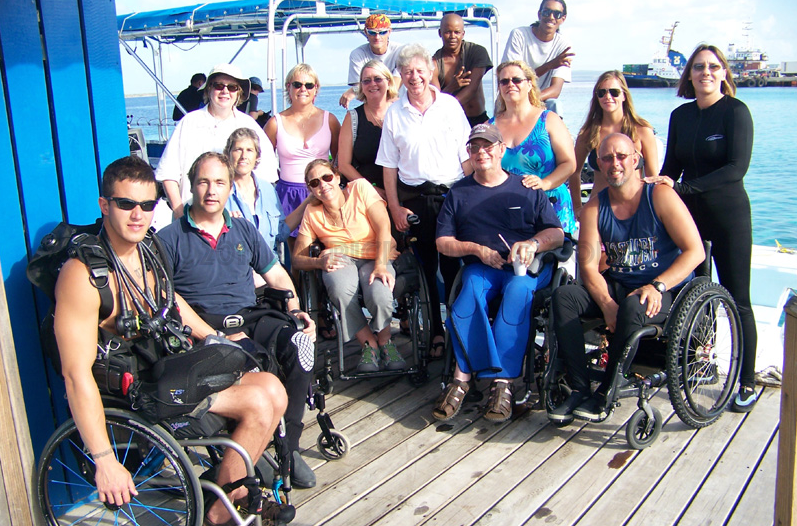Employing People With Disabilities
Is A Smart Move
A Win-Win Strategy
The business case for job and market access for people with disabilities is made here largely through the experience of some of the best-known, most successful and savvy names in business.
 The experiences of large corporations such as DuPont and the Royal Bank of Canada show that when business recruits persons with disabilities:
The experiences of large corporations such as DuPont and the Royal Bank of Canada show that when business recruits persons with disabilities:
- The pool of potential employees becomes larger
- Staff retention rates increase
- Absenteeism decreases
More than 30 years of internal surveys conducted by DuPont consistently show that people with disabilities who were part of the corporation’s labour force:
- Did their jobs well
- Had excellent attendance records
- Were diligent in observing safety standards
- Helped maintain the firm’s competitive position
The business sector could adopt a win-win strategy that makes sound economic sense. What it must do, though, is shift its perceptions and attitudes and embrace the concepts of accommodation and accessibility through universal access and barrier-free design. For far too many years, people with disabilities have been ignored in the marketplace. Yet this significant segment of the population is made up of many dedicated and talented people with much-needed abilities that have so far been underutilized in the work environment. Additionally, people with disabilities consist of a group that has been neglected by the consumer market, although its purchasing power – and the secondary market that it influences – is large and growing.
 Let’s look at the employment needs of the marketplace first. There are already critical shortages of workers in specific sectors, and this will intensify in the future. Utilize people with disabilities, both as employees and consumers. It references studies that describe how improving accessibility for people with disabilities also creates new opportunities for businesses to become more profitable and to save money, in both the short- and the long-term.
Let’s look at the employment needs of the marketplace first. There are already critical shortages of workers in specific sectors, and this will intensify in the future. Utilize people with disabilities, both as employees and consumers. It references studies that describe how improving accessibility for people with disabilities also creates new opportunities for businesses to become more profitable and to save money, in both the short- and the long-term.
Another topic that this report deals with is the business case for rethinking how we imagine disabilities. Once we see people with disabilities as unique individuals with varying abilities, who were born with, or acquired functional limitations at some point in their lives, we can begin to properly include them in our economic planning.
Stereotypes, generalizations and labels are seductively easy to use. But they obscure the singular blend of talents, skills and personality traits of each individual. For that reason, people in the business sector must demonstrate the vision to challenge their own assumptions about people with physical, sensory, mental or intellectual disabilities.

